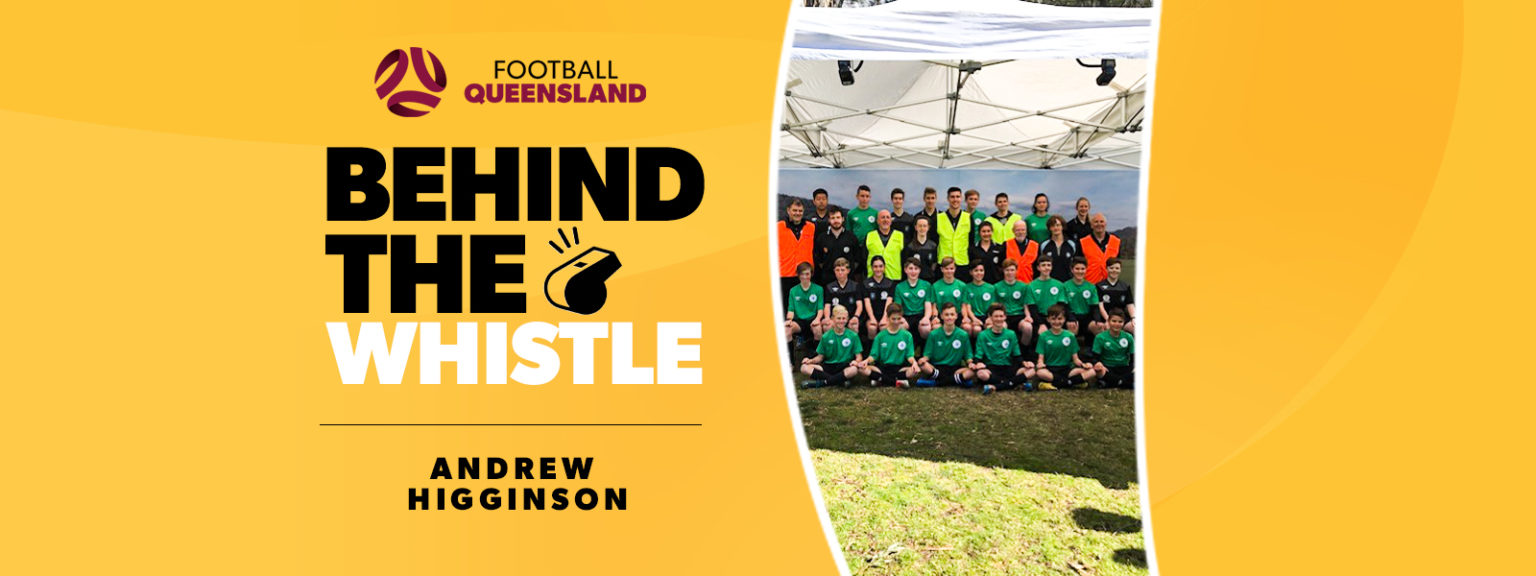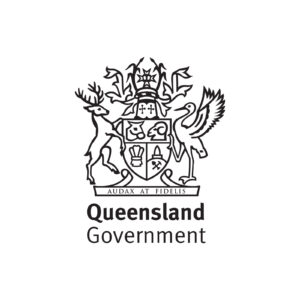In the August edition of Behind the Whistle, Football Queensland caught up with Andrew Higginson to discuss his ongoing efforts in supporting young referees in his roles as an assessor and mentor.
After more than a decade of experience in refereeing, Higginson embraced the opportunity to pass on his skills to young match officials by supporting junior referees in their development.
“It all started at our local club when the Referee Coordinator encouraged me to help the younger referees develop,” Higginson said.
“I said yes because when you are older and you look back at your own youth, it can be really rewarding to pass on all of that knowledge to the kids coming forward and asking for assistance.
“You get a great sense of achievement when you see them the next day applying the skills and knowledge you have discussed with them.”
The enthusiastic assessor and mentor has spent years helping young referees to not only develop skills as a referee, but also to build confidence in their own ability.
“My role as an assessor is to help people see their own potential. Assessors are there to make suggestions and it’s up to the referee whether they want to embrace them or not,” he said.
“I never try to tell people what to do, it’s all about taking people on a journey of improvement.”
Based in Canberra, Higginson provides services to FQ as a video assessor while also doing live assessments when visiting Queensland.
“Queensland is bigger [than Canberra] and has more clubs, which means it can be more tough here as you have more games,” he said.
“Referees are put under more pressure, and they have tough conditions to learn their skill base, but luckily Queensland has a great group of referees who embrace newcomers as an extra set of eyes to look at the game.”
When asked what advice he would give to other referees interested in becoming assessors, Higginson spoke about the importance of passing on knowledge to benefit not only the specific referees you work with, but the game as whole.
“By getting involved in this aspect of refereeing, you get the opportunity to transfer some of your knowledge to people who are keen to learn, which helps improve the game overall,” Higginson said.
“As an assessor, we try to look more broadly for trends in technical skills and you work with referees to recognise that slight edge that could push referees to improve and develop.
“But, at the end of the day it’s up to them to go out and replicate your advice in their own way.”
Higginson added that the most enjoyable part of being an assessor is helping junior referees develop their life skills while watching them progress on the referee pathway.
“The most important thing in the referee world is to help younger people embrace what it’s all about in terms of the broader perspective of life,” he said.
“Decision making, people management, and conflict resolution all play a key role in refereeing. A lot of life skills and refereeing go together.”
“I think ‘rewarding’ is the word I would use whenever you can help someone in life, no matter what their age is. It’s a great reward, personally, and hopefully it goes towards the greater good eventually.”
Words: Charlotte Monteath















